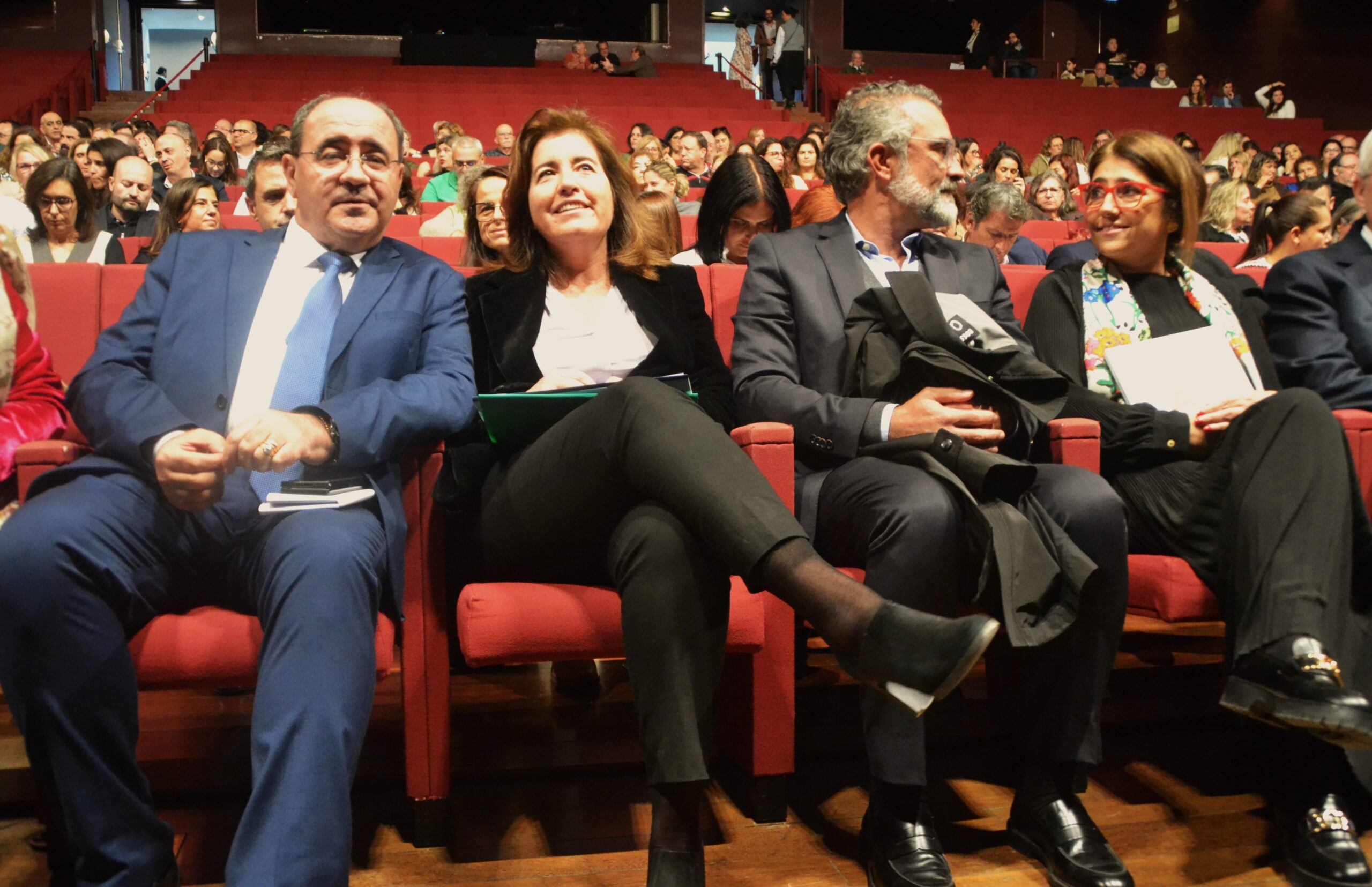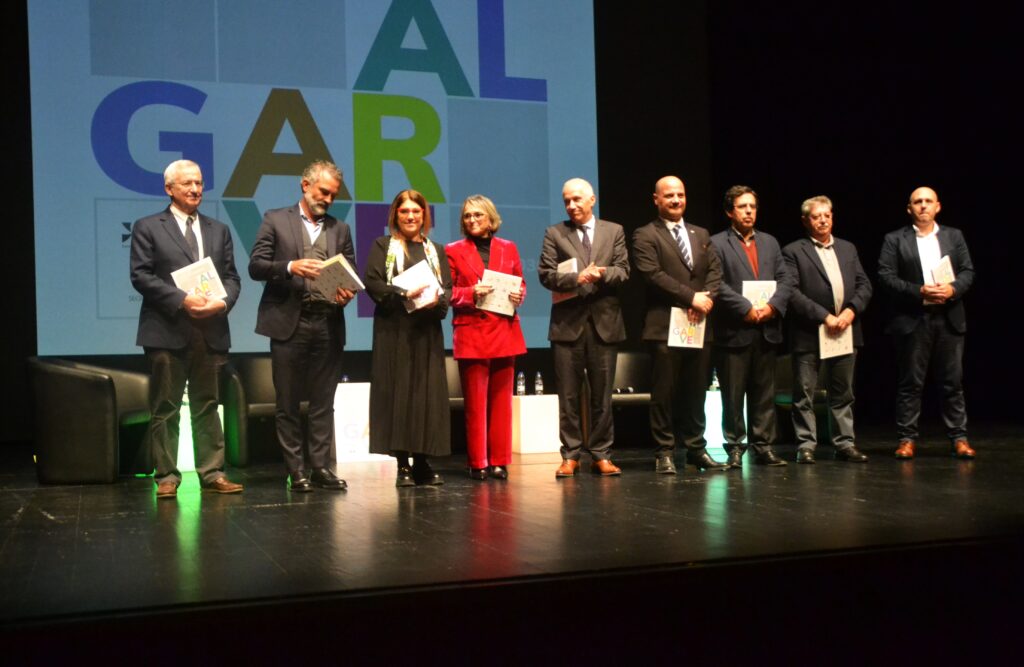It is not a plan to «stay in the drawer» and aims to eliminate «inequalities» that persist in the Algarve, such as precariousness, low wages, poverty or the housing scourge. The Algarve's Social Development Plan (PDS) until 2030 was presented this Monday, December 11th, after an in-depth diagnosis of the region and with the aim of combating specific social problems.
For some, the Algarve is sun, beaches, holidays, but for others, it is low wages, lack of housing and academic failure.
This is what the in-depth diagnosis that serves as the basis for this Social Development Plan, which foresees investments of 450 million euros, and which was presented at Teatro das Figuras, in Faro, with the presence of minister Ana Mendes Godinho.
There are disturbing data: the Algarve has almost 11 thousand children at risk of extreme poverty, income (gross value declared per inhabitant) is below the national average and there is a housing expense overload rate that is also higher than normal in Portugal.
Added to this is the fact that, in the Algarve, there is the highest percentage of part-time workers (8,5%, compared to 7,5% on a continental level).

The region also has the highest school failure rate in the country (19,9%), double the national (10,6%) and European (9,7%) average.
As you can see, there is a lot to do and it is, based on these data, that the Social Development Plan, developed by AMAL, but with contributions from Social Security, IEFP or Regional Health Administration, wants to work.
«We are talking about a set of coordinated interventions. Above all, we have here a methodology for articulation and for various instruments to contribute to it», said Joaquim Brandão Pires, first secretary of AMAL – Comunidade Intermunicipal do Algarve, to journalists, on the sidelines of the presentation.
In total, the Plan foresees 12 programs, some to be created, others already implemented.
Namely: the Regional Strategy for Access to Housing, the Regional Child Support Program, the Regional Program for Combating School Failure and Dropout, the Regional Strategy for Combating Poverty, the Regional Program for Gender Equality and Combating Domestic Violence, the Regional Program for the Integration of Immigrants, the Regional Agenda for Decent Work, Regional Program for the Valorization of the Social Economy, Regional Program for the Inclusion of People with Disabilities and/or Disabilities, Regional Program for Mental Health, Regional Program for Active and Healthy Aging and a Regional Program for Civic Participation.
The program relating to combating domestic violence is already underway, for example, and the program relating to educational failure «is practically starting up, probably starting in January», according to Brandão Pires.
The objective is, by 2030, to implement the 12 action programs that have measures to be developed, also using community funds.
With regard to housing, which is one of the main problems in the region, Brandão Pires explained that the objective is to work «in a second phase», after the current 16 Local Housing Strategies have already been established, in each of the municipalities.
«We are going to worry about things like finding housing for certain professions that are essential for the Algarve, houses for young people and thinking about the interior and housing as a means of repopulating the interior», he said.
The integration of immigrants is another concern, especially because the Algarve «is the region that has grown the most in population», according to the PDS.

«In the last two decades, the resident population of the Algarve grew by 18,3%, while, in the same period, the Portuguese population decreased by 0,1%. The Algarve now represents 4,52% of the total national population, compared to 2001% in 3,83. During the last 20 years, the population of the Algarve has grown by 72 residents. This value was due to the migration balance (+257 people), while the natural balance decreased (-81 individuals). A distinctive aspect of regional demography is the importance of the foreign population in the total number of residents. In the Algarve, foreigners represent 769% of the total number of residents, while in the rest of the country this representation is 9», according to the Algarve Social Development Plan.
In this area, what is planned is to expand municipal plans for the integration of immigrants to more municipalities (currently, only five have them).
Another priority is to guarantee universal and free pre-school education by 2027. «It has not yet been contracted with the CCDR, but it should be in January and it is to start, because it was a decision by the mayors, this investment in pre-school» , said Brandão Pires.
Speaking to journalists, the first secretary of AMAL guaranteed that this year "it will not be left in the drawer", despite recognizing that the Algarve has "an economic model problem".
“That’s the crux of the matter. We will try, with this set of measures, to eliminate these inequalities, but the type of employment that this economic model is creating does not provide great added value and it is not easy to change this paradigm”, he considered.
For Ana Mendes Godinho, Minister of Labor and Social Solidarity, this must be a “transformative” plan for the Algarve.
The government official also stressed the need for the document to be “more than the sum of its parts”, especially because it represents, in a way, the “culmination of the decentralization process”.
As for António Pina, president of AMAL – Comunidade Intermunicipal do Algarve, he considered that this is a “document for everyone”, also expressing his “pride in AMAL’s work”.
The presentation of the Plan also included a panel debate with Paulo Pedroso, sociologist, Francisco Amaral, mayor of Castro Marim, António Goulart, former trade unionist, and Sandra Araújo, coordinator of the National Strategy to Combat Poverty.
The Algarve Social Development Plan is available to read here



















Comments